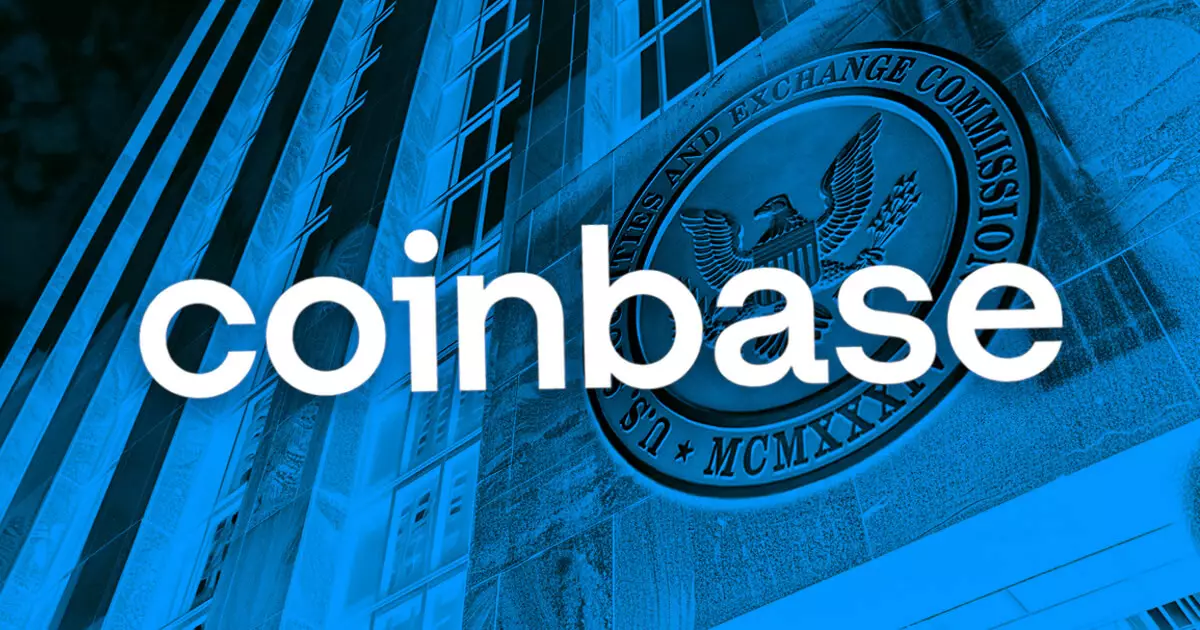The legal feud between the U.S. Securities and Exchange Commission (SEC) and major cryptocurrency exchange Coinbase has captured considerable attention since it commenced in June 2023. The SEC’s allegations claim that Coinbase has been operating as an unregistered securities broker, offering digital assets that the agency deems to be unregistered securities in violation of U.S. securities laws. Central to the SEC’s assertions is the Howey Test—a legal standard applied to determine whether certain transactions qualify as investment contracts, thus categorizing them as securities.
Coinbase, on the other hand, has fiercely contested these claims. The platform maintains that the digital assets available for trading do not fall under the classification of securities and insists that it operates within the framework of existing legal standards. This clash of interpretations sets the stage for a landmark confrontation regarding cryptocurrency regulation in the nation.
On September 18, 2023, the SEC submitted a formal request to Judge Katherine Polk Failla for a four-month extension on the deadline to complete fact discovery in the ongoing case. Initially set for October 18, 2023, the SEC is now seeking to push this deadline to February 18, 2025. The regulatory body cites the need to review a large volume of additional documents—specifically, an accumulation of over 133,000 unique documents that have surfaced during the discovery process.
In its letter, the SEC pointed out that it has already provided “hundreds of thousands” of documents to Coinbase. However, it stresses the importance of additional time to adequately meet court mandates and ensure a comprehensive examination of the materials. This request marks a significant juncture in the case, as it emphasizes the complexities and extensive nature of the discovery phase.
The SEC’s request for an extension not only seeks additional time for document review but also includes a proposal to revise the Civil Case Management Plan. This adjustment entails extending all subsequent deadlines by four months, thus affecting key proceedings and future preparations related to motions and trial schedules. Notably, Coinbase has agreed to these extensions, acknowledging that both parties would benefit from a more thorough review process before proceeding.
The ramifications of this extension could have far-reaching consequences for both parties involved. As the litigation unfolds, the allowance of more time could lead to a deeper scrutiny of the arguments and evidence presented, potentially influencing the ruling on critical issues pertaining to cryptocurrency regulation.
Coinbase has actively responded to the SEC’s claims during the pendency of the lawsuit. The exchange has filed a motion to dismiss the SEC’s allegations, arguing that the accusations lack substantive merit and asserting that the agency is overstepping its jurisdictional boundaries in regulating digital assets. Furthermore, Coinbase contends that the SEC has not provided sufficient clarity regarding which digital assets are subject to securities laws.
This defensive strategy not only underscores Coinbase’s commitment to maintaining its operational framework but also emphasizes the urgent need for regulatory clarity in the rapidly evolving world of digital currencies. By challenging the SEC’s stance, Coinbase is positioning itself as a key player not just in this legal battle, but in the broader narrative surrounding cryptocurrency compliance and regulation.
As this significant legal showdown unfolds, the implications for the entire cryptocurrency industry remain profound. The outcome of the lawsuit could set legislative precedents affecting how digital assets are classified and regulated moving forward. If the court leans in favor of the SEC, it could pave the way for stricter regulations that may reshape the operational landscape for crypto exchanges and define how other digital assets are treated under the law.
Conversely, a ruling in favor of Coinbase could provide much-needed clarity and reinforce the notion that certain cryptocurrencies do not fit into traditional categories of investment securities. As the industry awaits the court’s decision, stakeholders and investors alike are keenly observing the developments in this landmark case that could define the future of cryptocurrency regulation in the United States.


Leave a Reply